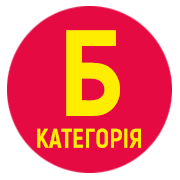INTELLECTUAL GAMES OF THE ANCIENT WORLD
DOI:
https://doi.org/10.32782/olimpspu/2024.1.17Keywords:
history, ancient world, intellectual games, religion, initiations, games inventory.Abstract
The modern entertainment industry is a complete plagiarism of long-forgotten intellectual entertainment of centuries and even millennia. The gaming business is one of the most profitable ways of filling the budget of both the state and an individual. This business includes casinos, table games, online casinos, slot machines, bookmakers, etc. The state, where the gaming business has a legal status, tries to control this process and fill the state budget through the taxation system. The cabalistic conditions of the modern entertainment industry, where only a tenth of the total revenue goes to winnings, and the rest to the business owner’s profit, do not stop gamblers. The World Health Organization (WHO) classifies excessive gambling addiction as a pathological disease and identifies it as “gambling” − the player’s unbearable desire to play for the purpose of obtaining money or other material values, and “ludomania” − a type of addiction of an individual characterized by addiction to computer and gambling entertainment. But this was not always the policy of things. During the days of the Antiquity period, games served a social purpose and solved completely different functions. The players behind the game boards had to demonstrate individual cognitive abilities and did not wait for the favor of fate. Cognition is an intellectual process associated with reflection on the formation of concepts, solving certain tasks, imagination and logic. The cognitive activity of society has always taken place in the dialectic of anthropogenesis from primates to intelligent man. The lack of strategic thinking led to the in evolutionary processes of australopithecines − a genus of fossil higher hominids that could think a maximum of two days ahead, and inhabited our planet for almost two and a half years, reaching the pinnacle of evolution. The material of this publication is the result of an analysis of the place of entertainment in the life of ancient civilizations.
References
Bell, R.C. (1983). The Boargame Book. Published in USA. Exeter Boors. New York. 170 p.
Crist Walter, Anne-Elizabeth Dunn-Vaturi, Alex de Voogt (2016). Ancient Egyptians at Play: Board Games Across Borders. New York, NY: Bloomsbury. 234 р.
Crist Walter, Anne-Elizabeth Dunn-Vaturi, Alex de Voogt (2016). Facilitating Interaction: Board Games as Social Lubricants in the Ancient Near East. Oxford Journal of Archaeology. 35 (2). P. 179–196.
Duggan, E. (2015). Ancient Board Games 1. The Royal Game of Ur and Senet. 62 р.
Edited by Finkel, Irving L. (2007). Ancient Board Games in perspective. London: British Museum Press. 296 p.







